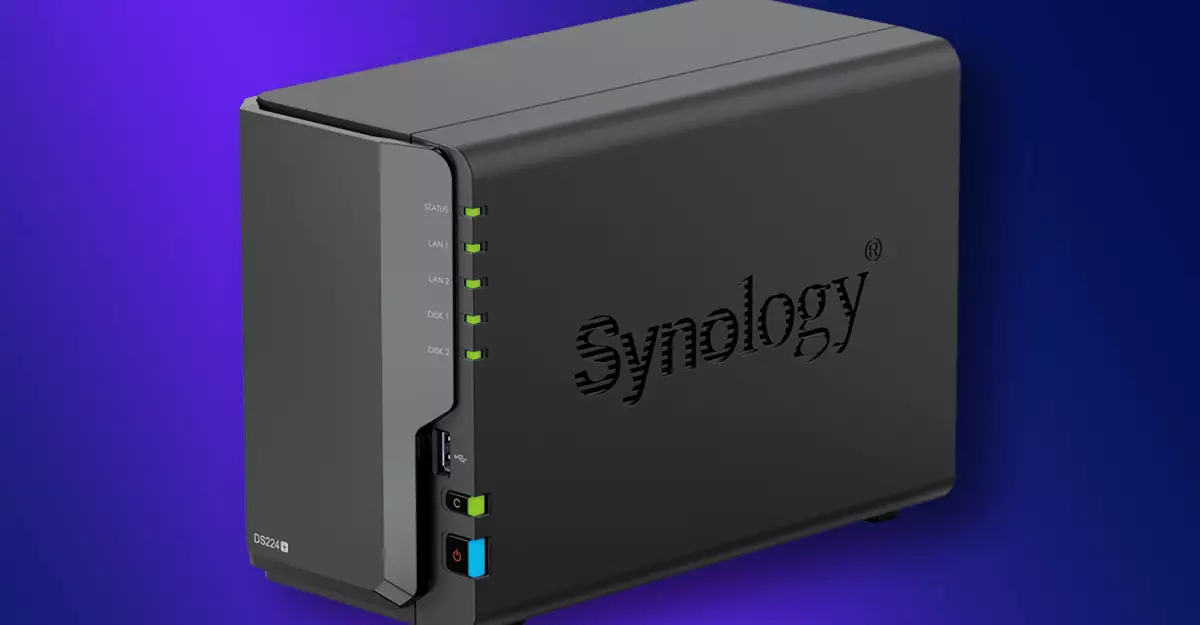In the ever-evolving world of network-attached storage (NAS) systems, Synology has recently announced a significant policy change that will impact how users engage with their devices. The technology giant confirmed it plans to implement stricter restrictions on third-party hard drives in upcoming models starting in 2025, a move that is sure to incite mixed feelings among its user base. While existing models will remain unaffected, new Synology NAS users may find themselves navigating a more restricted ecosystem for storage solutions. This article delves into the implications of Synology’s decision and its potential effects on consumers.
The Good, The Bad, and The Costly
At its core, Synology is positioning itself to enhance reliability and performance for its upcoming models. The company asserts that its extensive internal testing has revealed that using only certified drives mitigates risks associated with drive failures and compatibility challenges. While this notion may appeal to some, it comes at a cost. Users of Synology’s new Plus Series devices will find their storage options narrowed significantly. Previously, users embraced the flexibility of selecting from a diverse range of third-party drives, often saving money in the process. By enforcing the use of proprietary or certified drives, Synology risks alienating budget-conscious consumers who value choice and affordability.
The potential for reduced compatibility and increased costs may deter users from embracing the latest technology. After all, the ability to pool storage, conduct drive lifespan analysis, and utilize advanced software features is contingent upon selecting Synology-approved hardware. For those who have relied on third-party options, this could feel like a step backward, stifling innovation in a marketplace that thrives on diverse hardware options.
The Cheaper Alternatives: A Double-Edged Sword?
It is essential to examine the broader implications of Synology’s decision. On one hand, certified drives may enhance system reliability, ensuring that users can trust their data storage without unwarranted interruptions. For individuals or businesses that prioritize uptime and data integrity, this might be a worthwhile trade-off. However, on the other hand, it raises questions about monopolistic tendencies in the tech ecosystem. With Synology mandating the use of specific drives, consumers could end up paying a premium for what they once obtained at a lower cost.
Moreover, these restrictions could ultimately stifle innovation in the hard drive manufacturing sector. By limiting the variety of compatible products, Synology inadvertently creates a less competitive environment, diminishing the drive makers’ incentives to push boundaries or offer unique features. While Synology points to its validation process as a safeguard for users, one cannot escape the concern that a monopoly-like scenario could develop, where choice and price elasticity in the NAS market become constrained.
The Fine Line Between Innovation and Restriction
The debate around this new stance by Synology exemplifies a common theme in technology: the balance between innovation and restrictive practices. Many companies often find themselves facing the dilemma of ensuring product integrity while still maintaining user autonomy. Synology’s approach could be seen as a proactive means of ensuring compatibility and reliability, yet it also raises the question of whether user freedom has been sacrificed for the sake of corporate control.
As NAS systems have become hubs for personal and commercial data, the ability to customize these systems with various hardware options has been a beacon of opportunity for tech-savvy consumers. Synology’s latest move might appear to cater to a more curated experience, but it undermines the very principle of choice that has characterized consumer electronics over the years. In advocating for reduced compatibility issues, companies like Synology can inadvertently hinder the very innovation they seek to protect.
The User Response: Adapting to Change
Ultimately, how users respond will be pivotal. Current Synology users can breathe a sigh of relief as their existing systems remain unaffected, but potential new users might have to weigh the pros and cons keenly. Will they settle for a limited selection of compatible drives, or choose alternative NAS solutions that still support the plethora of third-party options?
This shift presents an opportunity for competitors to seize the moment and position themselves as champions of consumer choice. The landscape of network storage is ripe for disruption, and Synology’s restrictions could unwittingly spark innovation in rival offerings, granting consumers additional options in an increasingly homogeneous market.
As we approach a future where Synology’s policies take effect, it becomes imperative for tech enthusiasts and everyday users alike to engage in discussions about the best paths forward, advocating for systems that balance reliability with user autonomy.

